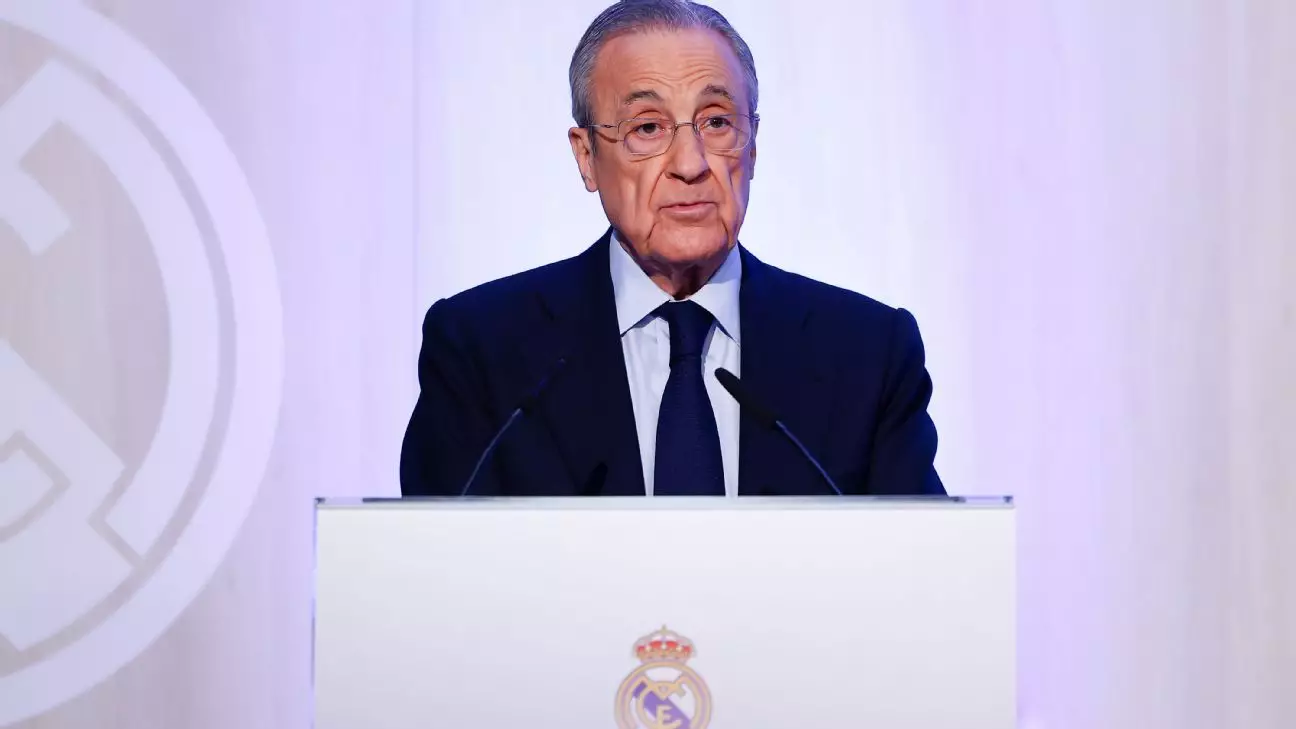Florentino Pérez’s recent re-election as the president of Real Madrid, unopposed for another four-year term, marks a significant moment in the ongoing saga of one of football’s most illustrious clubs. With his presidency spanning over two impactful periods—from 2000 to 2006 and then from 2009 to the present—Pérez has managed to define the club’s identity in ways that deeply resonate in both domestic and international arenas. His return to power in 2009 unleashed a tidal wave of change and success, affirming his position as a linchpin in the evolution of modern football.
The mechanics of such an uncontroversial election reflect the stringent prerequisites for candidates, a framework designed to maintain stability and exclusivity within the club’s governance. Candidates are required not only to have been dedicated members of Real Madrid for over twenty years but also to provide substantial financial guarantees, ensuring that potential leaders possess both loyalty and capability. While such regulations can prevent frivolous challenges, they also underline the club’s reliance on established figures, potentially stifling innovation and adaptability in an era when both are essential.
During Pérez’s tenure, Real Madrid hasn’t merely enjoyed sporadic victories; rather, it has embarked on a voyage of sustained triumph that places it at the pinnacle of European football. Notably, the club has clinched multiple La Liga titles alongside an impressive haul of Champions League trophies. His early strategy, known as the ‘Galáctico’ era, set the tone by attracting world-class talents like Luis Figo, Zinedine Zidane, Ronaldo Nazario, and David Beckham. These marquee signings transformed the team’s profile, drawing global attention and supporting burgeoning commercial endeavors.
However, the allure of star power does not shield the club from failures or challenges. Pérez’s initial resignation in 2006 underscored how the allure of grandeur can sometimes eclipse performance, leading to a drought of trophies during a critical phase. Yet upon his return in 2009, Pérez recalibrated his approach, prioritizing a harmonious balance between star power and robust team dynamics, culminating in several notable successes.
As of now, Real Madrid stands as both the reigning La Liga and Champions League champions, boasting recent victories in the UEFA Super Cup and the FIFA Intercontinental Cup. Such achievements solidify Pérez’s reputation; however, the recent 5-2 humiliation against Barcelona in the Spanish Super Cup final serves as a poignant reminder of the volatility inherent in competitive sports. Acknowledging failures alongside triumphs is vital for any leader, and Pérez’s ability to navigate both peaks and troughs of sporting success could define the legacy of his current term.
Moreover, Pérez also engages in prominent debates regarding the future of football itself. His advocacy for the Super League, which has been recently rebranded as the Unify League, highlights his intent to disrupt traditional governance structures in an effort to adapt to shifting economic realities in football. This stance has placed him in opposition to key figures like UEFA president Aleksander Ceferin and La Liga president Javier Tebas, drawing attention to conflicts over broadcast rights and investment strategies.
As Florentino Pérez embarks on yet another term, the questions surrounding the future direction of Real Madrid are multifaceted. His experience and deep-rooted connections within the footballing ecosystem provide a platform from which he can advocate for necessary reforms. Nevertheless, the challenges presented by modern football—such as financial sustainability, competitiveness, and fan engagement—demand innovative solutions that transcend old paradigms.
Ultimately, Pérez’s legacy still hangs in the balance. His unyielding influence can either sustain Real Madrid’s status as a colossal entity in football or risk becoming a symbol of an outdated model that fails to evolve with the demands of modernity. For the club, its members, and its vast global fanbase, the next four years under Pérez’s stewardship will undoubtedly be crucial in shaping the identity and future of Real Madrid.

Leave a Reply